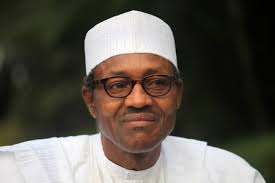FG takes over ill-managed Yola Disco from private investors
Following what the Federal Government described as bad management by investor of the Yola Electricity Distribution Company, the Federal Ministry of Power has taken over the management and control of the distribution company.
It has also appointed Mr. Baba Mustapha, an engineer, to lead the
company in the capacity of an acting managing director. Before his
new appointment, Mustapha was a deputy director in the Ministry of
Power.
The Head of Public Communication, Bureau of Public Enterprises, Mr.
Alex Okoh, confirmed the takeover of the electricity distribution
company in a telephone interview with our correspondent in Abuja on
Thursday. He, however, declined to give further details.
Integrated Energy Distribution and Marketing Company had on six
occasions (November 10, 2013, August 27, 2014, October 15, 2014,
April 9, 2015, April 30, 2015 and May 13, 2015) given notices of force
majeure, which is an irresistible force or compulsion such as will
excuse a party from performing his or her part of a contract.
Consequently, the matter was tabled before the sub-committee of the
Technical Committee on Power of the National Council on Privatisation
at one of its meetings.
The sub-committee recognised the reality of the force majeure, which
was in line with clause seven of the Share Purchase Agreement and
made recommendations to the technical committee.
The force majeure clause is a standard clause in most contracts and
includes events like natural disasters, wars and other occurrences not
within the power or control of the executing party that makes
implementation of the contract impossible.
Clause seven of the SPA stated that in a war situation, where the core
investor could not operate, it could invoke force majeure on issues
beyond its control.
The Yola Electricity Distribution Company covers Adamawa, Borno,
Taraba and Yobe states. Except for Taraba State, the other three have
been mostly affected by the activities of the Islamic insurgent group,
the Boko Haram, and the subsequent war against it.
The recommendations of the sub-committee were deliberated upon by
the Technical Committee of the NCP at its meeting in April, where the
basis for the declaration of force majeure was also acknowledged,
according to the BPE.
The technical committee made recommendations to the NCP, which at
its first meeting for 2015 held at the Presidential Villa, set up a
committee comprising the Permanent Secretary, Ministry of Power as
the chairman; a representative of the Nigerian Electricity Regulatory
Commission and the Director-General of the BPE, to explore the
implementation of the terms of the force majeure.
The Yola Disco is one of the 11 electricity distribution companies that
were sold to private sector operators in a gale of reforms of the
nation’s power industry that led to the unbundling of the defunct
monopoly, the Power Holding Company of Nigeria.
Integrated Energy Distribution and Marketing Company won the bid for
the YEDC and was required to pay N9.31bn for the firm.
Many Nigerians have expressed disappointment at the turnout of the
privatisation exercise as the significant improvement expected from
the power sector following the reform has not yet happened.
Agency report















